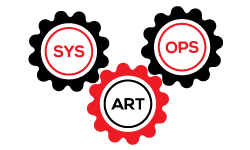Since I was young, I always had a keen interest on computing – an interest I picked from my big brother. We had the privilege of interacting with computers from a rather young age, doing what children would do with computers – playing games. Later on, we’d get articles to write and some data to fill in spreadsheets. Of course with this interactions, you get to know a lot more about computers. All this time, I used Windows on all laptops we had. Other than Windows, I knew one other OS, Mac OS and though we learned about Unix and Linux in high school, I couldn’t really get myself to understand what that is and who even uses it. A computer simply needed to have Windows to be usable and upgraded to the ‘classy’ Mac OS later on.
This was my mentality until I met a lecturer who changed my view of everything. At Jomo Kenyatta University, I met one Mr. Anthony Mwai Gatimu – the first person I ever saw talk about and use a Linux OS so passionately. At that time, Mr. Gatimu had used CentOS for 15 years and had mastered its usage so well he couldn’t even think of a command, no matter how long it is. He just typed it as though he read it right from the screen of the computer he used.
Mr. Gatimu’s proficiency in using Linux or rather GNU/Linux as he insisted, was my very first inspiration to venture into it. His practical approach on GNU/Linux in the three units he taught me was at first very demanding for me, and of course many other of my classmates. But his insistence on us having a machine with GNU/Linux for his lessons forced us to adjust. He
Over the years, I have interacted with two Debian based OSes: Ubuntu and Linux Mint. This was during the first years as I found them more user friendly. Later, however, I switched to CentOS and have used it for much longer now. I realized CentOS was the distro used on most servers and now, working at a hosting company, I appreciate choosing CentOS. It gave me the command line experience I needed to work. Currently, I have a Centos 7.5 box. My next one will be Fedora 29.
As I grew to understand GNU/Linux and FOSS, I kept asking why institutions like schools and government departments went out of their way to find Windows OS at such high expenses, yet GNU/Linux was there – with some very clear advantages over Windows. GNU/Linux, I came to learn runs the world from the background. Our phones, super computers,
I have realized a lot of things while I’ve been using GNU/Linux. Some lessons come when making mistakes like running powerful commands at the wrong places and being negligent about security and having to deal with the consequences. I particularly keep in mind an instance during my first days at work that really proved how unforgiving Linux is. But now, am far much better at this. My knowledge on this is not the best out there of course, for I realized Linux is very very wide, and my journey compared to other peoples isn’t far-reaching – yet. But am glad I know where to get solutions for the Linux problems I face and where to read on stuff new to me so I learn more and more.
My ambition for the future isn’t to get so good that I create my own Linux distro. That won’t be necessary given what we already have. But I aim to be an expert, contribute to the core stuff of Linux and master it well.
From what I’ve seen, there are guys who dived deep into Linux and FOSS in Kenya, but the state of Linux in Kenya is still raw, untapped as it were. I like to think of it as Linux and FOSS being an oil-rich field in a desert, with
At first, I used GNU/Linux because I had to for my classes. But the passion for it grew wildly in me and now, I cannot work without it. My love for Linux grew from 0 to 100. It’s like an arranged marriage that tuned out to be so great. I use Linux because I love it and because I appreciate the people who put so much effort to make and maintain stuff – only to give it free of charge for others to use and build on. This is the spirit of FOSS.

1 Comment